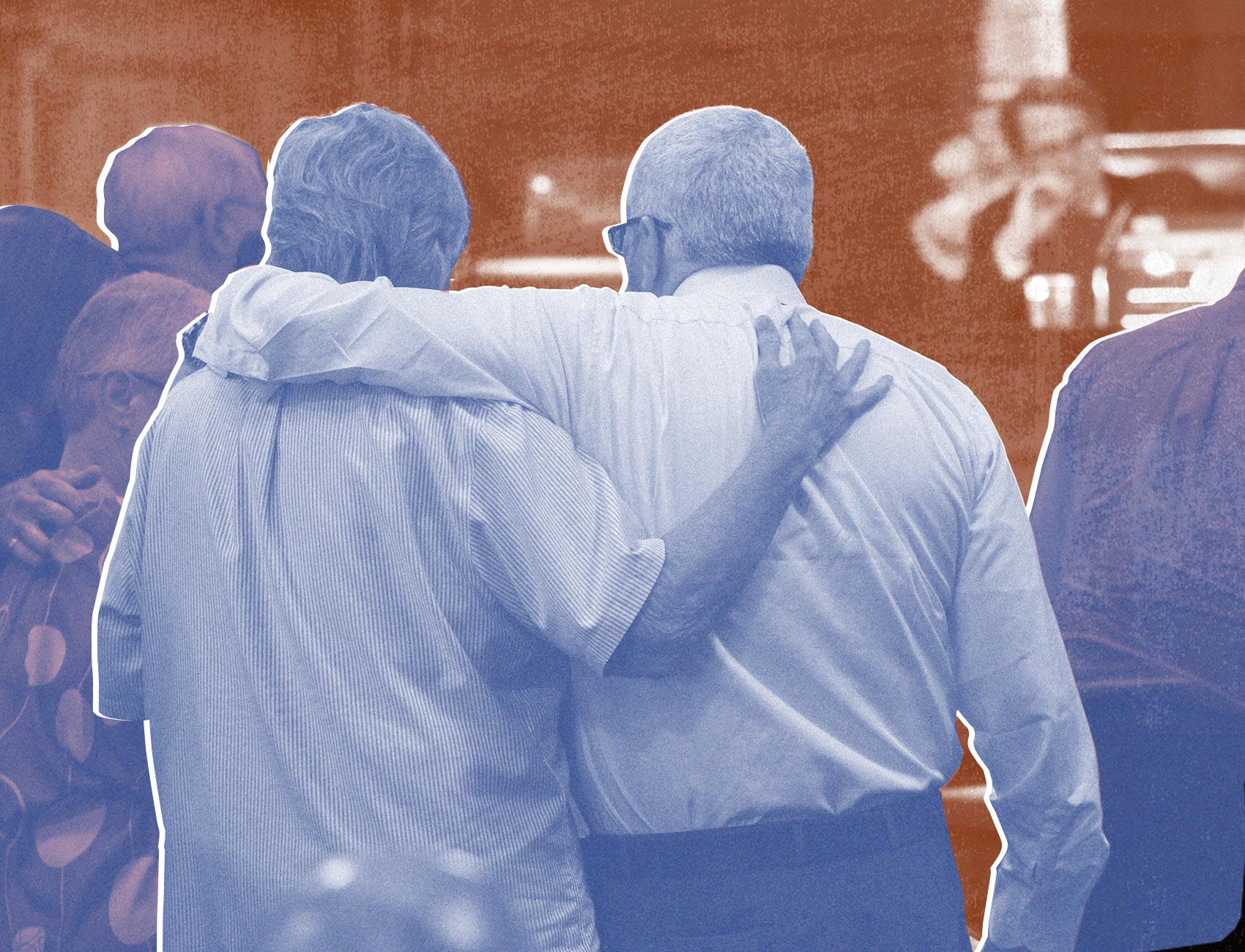A Historic Day May Mark The Beginning Of The End Of Death By Incarceration In Pennsylvania (original) (raw)
For a limited time, your donation will be doubled!
Double your donation today!
The Appeal in Your Inbox
Subscribe to our newsletters for regular updates, analysis and context straight to your email.
Topics
This month, nine people received commutations from life sentences, and Lt. Gov. John Fetterman is calling for changes to the commutations process to give more people second chances.

Family and friends of Charles Goldblum embrace during a hearing for a commutation from Goldblum’s life sentence on Sept. 13 in Harrisburg, Pennsylvania.Photo by Joshua Vaughn/Photo illustration by Elizabeth Brown
Charles Goldblum has spent more than 40 years in a Pennsylvania state prison for a murder he maintains he didn’t commit. In 1977, Goldblum was convicted of first-degree murder and then sentenced to life in prison without the possibility of parole. He is currently one of more than 5,400 people sentenced to death by incarceration in the state.
But on Sept. 13, Goldblum and eight other people serving life without parole received recommendations for commutations from the Pennsylvania Board of Pardons. The number of commutations granted was the largest in recent memory: From 2015 through 2018, only six cases were recommended for commutation and just 10 were recommended in the 20 years preceding current Governor Tom Wolf taking office in 2015.
The Appeal in Your Inbox
Subscribe to our newsletters for regular updates, analysis and context straight to your email.
“[Commutations] are the only remedy for a second chance in Pennsylvania,” Lt. Gov. John Fetterman, chairperson of the Board of Pardons, told The Appeal. “It needs to be remade and refined to maximize opportunities for those [people] who deserve a second chance.”
The commutations process for people serving life in prison in Pennsylvania was once robust. During Governor Milton Shapp’s tenure from 1971-78, more than 730 people serving life in prison received a hearing. Of those, more than 260 received a commutation recommendation from the board and more than 250 had their sentences commuted by Shapp.
Commutations nearly came to a halt in the mid-1990s when Reginald McFadden, a man who was released because of a commutation, was arrested and accused of rape and murder in 1994.
McFadden’s release and rearrest occurred in the midst of a gubernatorial election. A large lead in the polls evaporated for Mark Singel, the lieutenant governor who voted to approve McFadden’s commutation. His opponent Tom Ridge was later victorious.
The McFadden case also prompted the state legislature to revise the commutation process to require that all five board members approve a commutation before it is sent to the governor for a final determination. Previously, a person only needed approval from a majority of board members. During his tenure from 1995 to 2001, Governor Ridge issued no commutations for life sentences. Since then, the Board of Pardons has allowed few hearings on commutations for life sentences.
“[As] much as I regret that fateful decision, I cannot accept the alternative: a government and a society that looks with cold indifference at those who have turned their lives around and who languish in our overcrowded prisons,” Singel wrote in 2017. “Too often fear and hatred drive our reactions to tragedy, and the result is only more pain, more violence, more suffering. For me, mercy and compassion are more than personal options. They are the antidotes to that fear and hatred.”
Lt. Gov. Fetterman, who took office in January, has called for the revitalization of the commutation process.
On Sept. 13, the Board of Pardons heard 20 cases for commutations from life sentences. Goldblum, along with Gervin Deaton, Antonio Mazzccua, David Sheppard Sr., David Moore, Eugene Grannison, Oscar Pinto, Magaleen Stewart, and Raymond Johnson received commutation recommendations. The decision to grant commutations in their cases now rests with Governor Wolf. Votes in three other cases were continued to a later date and eight cases were denied commutations.
Along with instituting policies to increase the number of applications for commutations and better screen applications, Fetterman supports a state constitutional amendment that would allow recommendations of commutations from life sentences to pass with a vote of 4-1 from the pardon board.
But the amendment must clear both chambers of the state legislature in two consecutive sessions and then be approved as a referendum by voters. The earliest it could take effect is 2021.
“What I hope I’ve accomplished [by the end of my tenure] is that we’ve given as many second chances as we possibly can to the deserving,” Fetterman said. “It doesn’t serve anyone’s interest to doom a wholesale population to die in prison.”
